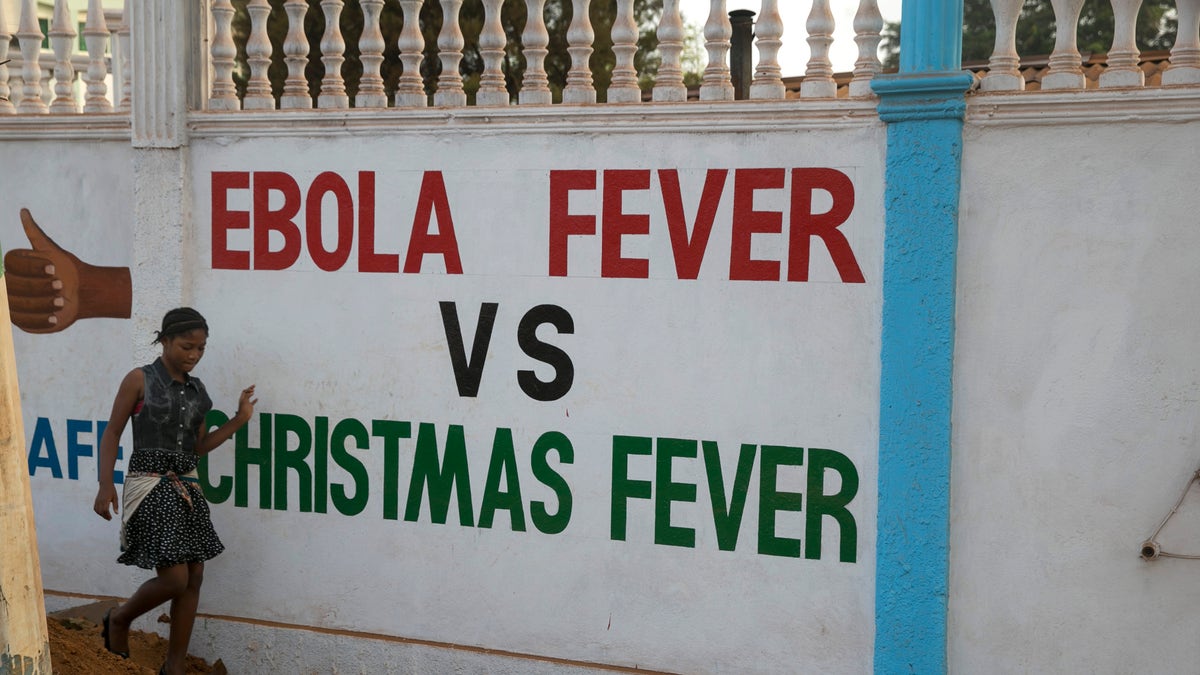
A girl walks past a a sign in Freetown December 21, 2014. REUTERS/Baz Ratner
Sierra Leoneans observed a somber Christmas in their homes on Thursday, after the government banned traditionally boisterous holiday celebrations to prevent the spread of deadly Ebola in the worst-hit country.
Small groups of Christians in formal attire were permitted to attend church services, but the family gatherings, beach parties, concerts and dancing that usually accompany the holiday were banned to help slow the deadly virus.
Police patrolled the capital's twisting streets and manned temperature check points to watch for symptoms of the haemorrhagic fever. On the radio, musicians who would normally be performing at live concerts played Ebola awareness jingles.
"We want to avoid contact because of this deadly disease. It's necessary but I am not really happy. Normally we have a lot of fun with family and friends, but we just have to stay home," said Kadija Kargbo, a cleaner in the capital Freetown.
She planned to stay indoors and watch films with her children instead of celebrating at the beach this year.
At a Red Cross treatment center in the eastern city of Kenema, a small group of patients gathered around a cassette player listening to Christmas carols, said Jestina Boyle, a psychosocial assistant with the Red Cross.
"Some are sitting and listening and those who are too weak can hear it from their beds," said Boyle by telephone before doing her morning round to visit the sick. "I will sing gospel for them. I will give them encouraging words and tell them not to lose hope."
The center held a small concert for patients earlier this week. A nurse in full personal protective equipment entered the patient area and danced, holding the hands of two children. One patient stood and danced while others watched from their beds.
With more than 9,000 cases, Sierra Leone now accounts for nearly half of the known cases of Ebola in this year's West African outbreak, the worst ever. Neighboring Liberia and Guinea have also been badly hit.
President Ernest Bai Koroma has announced a new operation to identify the sick in an effort to slow the disease's spread. Further north in the district of Port Loko, officials have declared a three-day lockdown and asked residents to stay indoors.
Sierra Leoneans have a reputation for partying in the face of hardship and bars were often heaving during successive rebel incursions into the capital during more than a decade of civil war that ended in 2002.
"People know about Ebola but we are worried that we've had it so long that they normalize the situation and party," said OB Sisay, director of the situation room at the National Ebola Response Centre, explaining the measures.
He said police had received instructions to break up gatherings and arrest the organizers.
